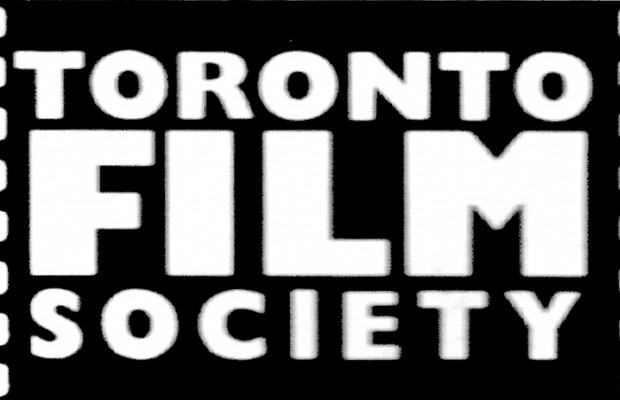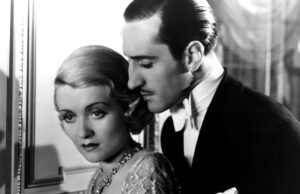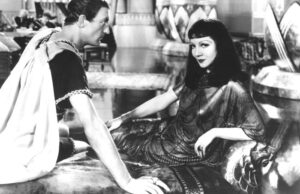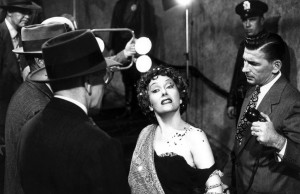Newsletter Winter 1984-85
By Toronto Film Society on May 8, 2014
NORMAN JEWISON: THE NEWEST PATRON OF THE TFS
When Canadian filmmaker Norman Jewison gingerly entered a daunting roomful of Hollywood stars sometime in the late 1950’s, one of the first celebrities he met was Rex Harrison. “You’re Canadian, aren’t you?” asked Harrison. “Yes,” replied Jewison, “Good God,” marvelled Harrison, “you look like a paper-boy.”
Roughly a quarter of a century later, Jewison has acquired an international ease and sophistication that is a far cry from the image of the inhibited young man he claims he once was. But from behind a neatly trimmed greying beard, the charm that he radiates is one that can still be called boyish.
This past spring, HJewison, whose films have won nine Academy Awards and been nominated for twenty-six, who has won Emmys and received the Order of Canada, added the title of Patron of the Toronto Film Society to his credentials. In doing so, he joined a very distinguished lot, for the TFS can boast as its current patrons the Honourable Pauline McGibbon, Christopher Chapman, Frank Crawley, William K. Everson, Graeme Ferguson, Norman McLaren, Gerald Pratley, and Curly S. Posen. Last year, the TFS Board of Directors said, “It’s high time we added Jewison to the roster.” And now the TFS is deeply honoured that Norman Jewison has graciously accepted our overdue invitation.
If, in the Hollywood of the 1950’s, Norman Jewison was instantly billed as a Canadian, it was not just a passing phase.
Jewison has never lost sight of his national origins. He was born in Toronto in 1926, married a girl from the Beaches to whom in non-Hollywood style he is still married, and after working in Britain and the U.S. returned to Canada in 1978 to set up his principal office here inToronto.
One of the first questions Torontonian film-buffs might ask is, how did this home-town boy find fame and fortune in Hollywood? What was his route?
Jewison’s trek to the top can only be described as an Odyssey–with stops along the way as exciting and as treacherous as any encounter with a Circe or a Cyclops. His first step into show business should probably be identified as his childhood experiences as a side-show barker at fall fairs around Markham and Uxbridge, where his father would run knock-down-the-bottle games. (Jewison’s parents normally ran a dry-goods store and post office; the Depression led them, like many others in those years, to more venturesome enterprises.) Norman also trotted around to lodges in the Beaches, vigorously reciting the poetry of Robert W. Service. Also while a child, Jewison took piano lessons up to Grade 10 with the necessary theory. The musical skills he acquired would stand him in good stead in later years when, after his service in the Royal Canadian Navy in World War II, he would write, direct and perform in the Bob Review and the All-Varsity Review at the University of Toronto. Even when working two summers at the Banff Springs Hotel, Jewison whipped the staff into singing and dancing shape and mounted a show that tapped its way from Alberta all the way to Seattle!
Graduation from Victoria College, University of Toronto, was followed by some acting on CBC radio (when not driving a Diamond cab), and a two-year work-study session with the BBC. In the early 1950’s, the CBC called him home, where, it is only fair to say, Jewison’s contribution to the birth of television in Canada was pivotal. He wrote, directed and produced some of Canada’s most popular and successful musicals, dramas, comedy-variety shows and specials from 1952 to 1958. With such a success story behind him, it was inevitable that a large U.S. network would grab him up; so he worked for CBC from 1958 to 1961. Jewison’s specials for Frank Sinatra, Judy Garland and Harry Belafonte all won Emmys.
It was about 1961 that Jewison’s basic idealism caught up with him–at least enough to make him believe that feature filmmaking at Universal Studios might be slightly less crass than the constantly devouring television industry.
Some of Jewison’s earliest feature films at Universal, starting with Forty Pounds of Trouble in 1962 and including the Doris Day-James Garner film, The Thrill of It All, rank among the most entertaining films of the period. But Jewison believes that his important film career began only when he abandoned studio controls to become the independent director of The Cincinnati Kid (1965). Two of Jewison’s most acclaimed films followed this: the darlingly comic The Russians Are Coming, The Russians Are Coming in 1966, and In the Heat of the Night (1967). The latter film was nominated for seven Academy Awards and Took five, including Best Pictgure and Best Actor (Rod Steiger). The Thomas Crown Affair (1968) experimented stylishly with multiple images and ultra-slick photograph, to become many people’s favourite cat-and-mouse thriller romance (with Steve McQueen and Faye Dunaway). Fiddler on the Roof (1970) and Jesus Christ Superstar (1972) are lavish on-location adaptations of formerly stage-bound Broadway musicals. The former film was a box-office smash, but the latter film is particularly innovative in its unmitigated dedication to an all-singing soundtrack. Rollerball (1974) condemned in a tightly-shot close-up technique, a futuristic world of organized violence, while And Justice for All (1979) provided Al Pacino with an actor’s paradise in a film of dynamic social commentary. Most recently, A Soldier’s Story (1984) returned to a world of prejudice not unrelated to that of In the Heat of the Night, and has been receiving similar critical acclaim.
Have all of Jewison’s films been so acclaimed? Well, hardly. “We all make clinkers,” confessed Jewison to TFS lifetime member, Clyde Gilmour. But Jewison has made fewer than most. Event Best Friends (1982), which was too often dismissed as a likeable but light-weight star vehicle for Burt Reynolds and Goldie Hawn, had much more to say than critics allowed. The film and the misfortune to be released almost simultaneously with another timely comedy, Sydney Pollack’s astoundingly successful Tootsie.
What links the films of Norman Jewison together is an insistence on humanistic values, a confrontation with the issues of modern times: racial bigotry; the importance of traditions and of families; the place of religion; political tyranny; judicial corruption; the potential for war and peace. And the connecting point of view hearkens consistently back to those strong Methodist values born in East-end Toronto. “My fascination has always been with my fears and my joys, with the fears and joys that surround me. I make my films out of those ideas and those feelings,” he has said. Perhaps what he has always been seeking, he has explained, is an approving pat on his head from his father. On the other hand, in a glibber, less meditative mood, Jewison has added, “The movie business is the richest, riskiest crap game in the world!”
Is there a Norman Jewison style as well as a thematic unity? “I try desperately to make each film an entity of its own. Each film has its own style,” said Jewison recently in an interview on the CBC Journal. But he also admitted that he can see a global style in his own work. So can anyone else who has the opportunity to see a number of his films in immediate succession. He has a love of reflections in plate-glass windows, or shots of cars or caravans fruitlessly marking time on the screen while supposedly approaching the camera. Jewison points out as well that many of his films contain episodes in cemeteries.
When not making films, Norman Jewison has a variety of hobbies. The Toronto press has made much of his farming acumen (inherited perhaps from his great-grandfather). At their 200-acre farm near Caledon, Dixie and Norman Jewison keep horses, hogs, sheep and fowl. Three of Norman’s favourite pigs are Groucho, Chico and Harpo, who all have distinct personalities. His pet nanny-goat, Golda, thinks she’s a horse. The Jewison’s herd of Hereford cattle wins prizes. Iceman, a six-month old bull, was named Grand Champion at this year’s Canadian National Exhibition, and his sister, First Lady, is the reigning supreme Grand Champion of the U.K. The Jewison’s 100 per cent pure maple syrup is marketed from Fenton’s Take-out, just a stone’s throw from Knightsbridge Films, Norman’s downtown Toronto office. Can the marketing of Norman’s own secret-formula spaghetti sauce be far behind?
The Jewisons are great party-givers, and three of their formats have, by popular demand, become annual events: a sugaring-off party in the late winter, a Festival of Festivals Sunday get-away-from-it-all picnic in September, and, in Malibu, a Canadian ex-patriates’ do held as close to the first of July as possible.
A few years ago, Norman Jewison made a generous donation to his Alma Mater Victoria College, which has been used to bring such veteran Hollywood directors as Joseph L. Mankiewicz and Robert Wise to lecture in Toronto. “It is from people like these,” says Norman, “that my generation learned its craft. Let’s all profit from their wisdom while we still can.”
What are Norman Jewison’s plans for the future? If we can believe the press he will be busier than ever. In October, filming began in Montreal on his screen adaptation of Agnes of God. He has signed Larry Gelbert, who scripted Tootsie to write an original screenplay about an all-girl orchestra, and his contracted Erika Ritter to do a script from her hit comedy, Automatic Pilot.
Perhaps if he is persuaded enough, the TFS’ newest patron will film a Canadian-scented version of The Egg and I, featuring Gold the nanny-goat and Harpo the pig. With a cemetery and a social message, of course. After all, stranger things have happened!
by Cam Tolton
You may also like...
-
News

Frances Blau
Toronto Film Society | February 27, 2024On Monday, February 26th, 2024, Toronto Film Society lost longtime friend, supporter, and board member Frances Blau. Known for her sense of humour, her love of film, her generosity,...
-
Special Events

Arsenic and Old Lace (1944) at the Paradise Theatre
Toronto Film Society | April 21, 2024Toronto Film Society presents Arsenic and Old Lace (1944) at the Paradise Theatre on Sunday, May 5, 2024 at 2:30 p.m. Screwball comedy meets the macabre in one of...
Programming

Arsenic and Old Lace (1944) at the Paradise Theatre
Toronto Film Society | April 21, 2024Toronto Film Society presents Arsenic and Old Lace (1944) at the Paradise Theatre on Sunday, May 5, 2024 at 2:30 p.m. Screwball comedy meets the macabre in one of...
-
 Toronto Film Society | May 3, 2024
Toronto Film Society | May 3, 2024
-
 Toronto Film Society | November 6, 2022
Toronto Film Society | November 6, 2022
-
 Toronto Film Society | August 1, 2023
Toronto Film Society | August 1, 2023
Donate to Toronto Film Society – We’re now a Registered Charity!
-
Copyright © 2017 Toronto Film Society.





Leave a Reply